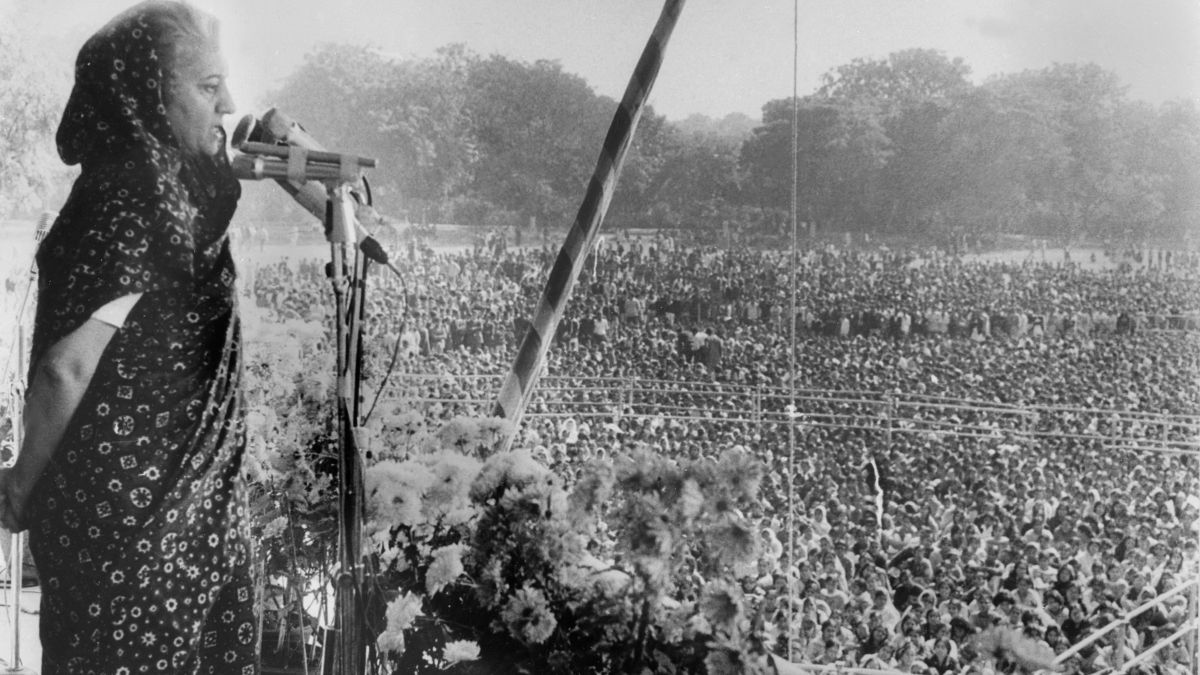It has been 50 years since a High Court’s judgement against India’s prime minister changed the country’s trajectory. On June 12, 1975, the Allahabad High Court declared then Prime Minister Indira Gandhi’s Lok Sabha election void, sparking a domino effect that led to the imposition of Emergency a few days later.
The verdict caused a political storm and had ramifications for the entire country. But why was Indira Gandhi’s election set aside? We take a relook.
Petition against Indira Gandhi
In the 1971 Lok Sabha polls, Indira Gandhi, who had floated the Congress (R) — the breakaway faction of the Congress — after being expelled from the parent party in 1969, defeated her opponent Raj Narain by 1,10,000 votes from the Rae Bareli constituency in Uttar Pradesh.
Her party also registered a landslide victory in the elections, winning 352 out of the 518 Lok Sabha seats.
Raj Narain, the Samyukta Socialist Party candidate, however, challenged Gandhi’s election from Rae Bareli on April 24, 1971. He approached the Allahabad High Court alleging electoral malpractices and misuse of government machinery by the then Prime Minister.
Giving no weightage to the petition, people did not anticipate what would come next.
The petition was first listed before Justice William Broome, the last British judge of the Allahabad High Court. However, he retired in December 1971 and the petition reached two different benches — one of Justice BN Lokur and of Justice KN Srivastava.
Due to their retirements, the petition went before the bench of Justice Jagmohan Lal Sinha in early 1975.
The verdict that changed India
The recording of oral evidence began on February 12, 1975. Several big names appeared as witnesses — PN Haksar, then vice chairman of the Planning Commission, appeared for Gandhi.
While LK Advani, the then president of the Bharatiya Jana Sangh, former Bihar Chief Minister Karpoori Thakur and Congress-O president S Nijalingappa deposed for Raj Narain.
The Prime Minister was also cross-examined for two straight days — a first in the history of independent India. As Gandhi appeared before the court on March 18, 1975, she was given a chair on an elevated platform so she was sitting on the same level as the judge, as per the Indian Express report.
After the arguments concluded, the High Court shut down for summer vacations on May 23, 1975.
Now, it was time to wait for Justice Sinha’s verdict. Under immense pressure, he is said to have locked himself up at home, with visitors being told that he is in Ujjain to see his elder brother.
Justice Vipin Sinha, Justice Sinha’s son, recalled the pressure on his family at the time. “I was in Class 11 then and those days were very hard for us. We got a lot of very abusive calls, so much so that we did not allow our father to answer the phone,” he was quoted as saying by Indian Express.
Then came the judgement day. Announcing his ruling on June 12, 1975, in Courtroom No 24 of the Allahabad High Court, Justice Sinha said, “This petition is allowed and the election of Smt. Indira Nehru Gandhi, Respondent No. 1, to the Lok Sabha is declared void… (Indira Gandhi) accordingly stands disqualified for a period of six years from the date of this order.”
Justice Sinha found Gandhi guilty on two counts — for using a gazetted officer, her personal secretary Yashpal Kapoor, as her election agent, and for employing Uttar Pradesh government officers to arrange rostrums, loudspeakers and barricades for her election speeches.
The court ruled in her favour on other charges –– for using choppers of the Indian Air Force to go to Rae Bareli for her election campaigning and file nominations, invoking religion to influence electors and distributing quilts, blankets, dhotis and liquor to get votes, and so on.
Justice Sinha’s final 258-page ruling meant immediate disqualification for Indira Gandhi as an MP and her dismissal as Prime Minister.
However, after her lawyers argued that her removal would create a political vacuum in the country, the court granted a 20-day stay on the verdict.
Meanwhile, Gandhi moved the Supreme Court on appeal. The case was heard by a single-judge vacation bench of Justice VR Krishna Iyer.
On June 24, 1975, the apex court granted a “conditional stay” against the Allahabad High Court ruling. While Indira Gandhi could continue as PM, her rights as an MP were restricted.
She could not vote in Parliament, take part in proceedings of the House, or get a salary as an MP until the SC finally decides the appeal.
Indira Gandhi imposes Emergency
Days after the HC’s ruling, Indira Gandhi invoked Article 352 of the Constitution to impose an internal Emergency .
This period lasted for 21 months, during which people’s fundamental rights were suppressed and dissent curbed across the country. The media were gagged and opposition leaders jailed.
Seen as the Constitution’s darkest chapter, the Emergency was a real test for the Indian democracy.
With inputs from agencies
)